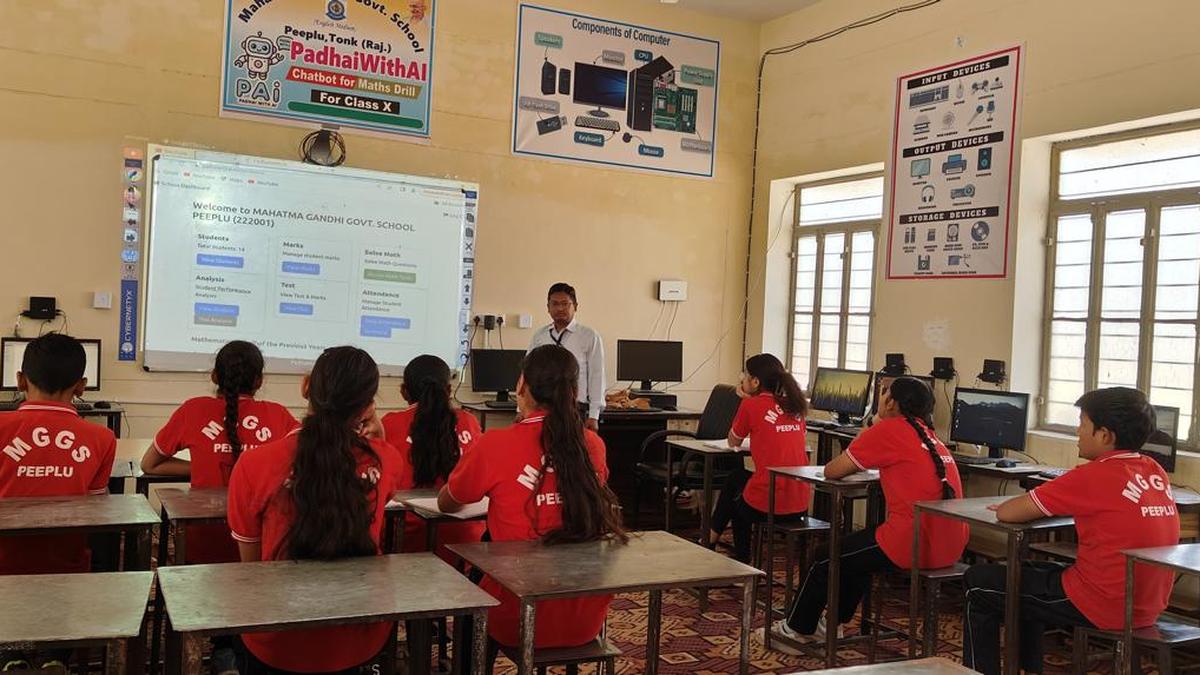Why AI Literacy Is Essential For Success In An AI-Driven Economy

AI literacy is essential in an AI driven economy
gettyWhile students across America master algebra and essay writing, they're graduating without understanding the technology that's reshaping every industry. Artificial intelligence now powers everything from customer service chatbots to medical diagnoses, yet most high schools treat AI literacy as optional—if they address it at all.
This educational gap creates a serious disadvantage for young people entering the workforce. AI literacy should be taught in schools just like math, science, and English—as a fundamental subject necessary for navigating the modern world. Without this foundation, students miss critical opportunities to understand and leverage the technology that will define their careers.
The numbers make the case for urgent educational reform. McKinsey research indicates that generative AI could contribute between $2.6 trillion and $4.4 trillion annually to the global economy. Companies successfully implementing AI see up to 40% performance increases across their workforce. Despite this massive economic impact, most students graduate without basic AI literacy.
This educational oversight creates real consequences. These young people instinctively understand AI's potential but lack the structured learning that would help them use it effectively and ethically.
Schools that ignore AI literacy are doing their students a disservice. Just as computer literacy became essential in the 1990s, AI literacy is becoming mandatory for professional success. Educational institutions must integrate AI training into their core curricula, rather than treating it as an elective or afterthought.
This requires more than simply allowing AI tools in classrooms. Schools need to hire qualified instructors or partner with AI education specialists to develop comprehensive training programs. They must create AI usage plans that outline how AI will be used across subjects, what ethical guidelines students should follow, and how AI education aligns with broader learning objectives. Educators themselves need thorough training on the school's AI plan to implement it consistently and effectively. Parents and students deserve transparency about these policies, including which AI tools are approved for use and how schools plan to prepare students for an AI-driven future.
The modern workplace demands AI literacy across industries and roles. Marketing professionals use AI for content creation and customer analysis. Healthcare workers rely on AI-powered diagnostic tools. Financial advisors leverage AI for investment research and risk assessment. Even creative fields like graphic design and music production now incorporate AI tools as standard practice.
For young people entering this job market, AI literacy provides three critical advantages:
AI tools amplify human intelligence by processing vast amounts of data and identifying patterns humans might miss. Workers who understand how to leverage these capabilities become more effective problem-solvers and strategic thinkers.
AI can automate routine tasks, allowing workers to focus on higher-value activities that require creativity and critical thinking. Employees who master AI tools often outperform those who rely solely on traditional methods.
The pace of AI development continues to accelerate. Workers with strong AI literacy can adapt to new tools and applications as they emerge, while those without this foundation struggle to keep pace with technological evolution.
Teen entrepreneurs demonstrate what's possible when young people embrace AI literacy. Teen entrepreneurs in WIT (Whatever It Takes), which I founded in 2009, have a distinct advantage because we teach AI usage through our own AI platform, WITY. We show students how AI can be used for good—to enhance their capabilities and solve real problems—but not to replace their unique thoughts, creativity, and authentic voice.
Teen entrepreneurs utilize AI to analyze social media trends, comprehend customer sentiment, and pinpoint market gaps. These tools process thousands of data points in minutes, providing insights that would take weeks to gather manually.
Young business owners leverage AI for writing product descriptions, creating marketing materials, and generating social media content. They use these tools for initial drafts and brainstorming, then add their voice and expertise to create authentic, engaging content.
Teen entrepreneurs implement AI tools for inventory management, customer service automation, and financial tracking. This allows them to operate efficiently with small teams while competing against much larger businesses.
Young entrepreneurs utilize AI chatbots for initial customer inquiries, AI-powered email marketing for personalized communications, and AI analytics to gain insights into customer behavior patterns and preferences.
The success of these teen entrepreneurs proves that age isn't a barrier to AI adoption. Their willingness to experiment with new technologies gives them significant advantages over competitors using traditional methods.
For students and young professionals who haven't yet developed AI literacy, the path forward involves practical, hands-on learning:
Begin by using AI tools for tasks you already perform. If you write frequently, experiment with AI writing assistants. If you manage social media, try AI-powered content creation tools. This approach fosters familiarity while addressing real-world problems.
Research how AI is transforming your field of interest. Healthcare students should explore AI diagnostic tools. Business majors should understand the applications of AI in marketing and operations. This knowledge helps you speak intelligently about AI's role in your chosen career.
Learn to recognize AI limitations, bias, and ethical considerations. Understanding when AI might produce inaccurate or biased results helps you use these tools responsibly while maintaining credibility with colleagues and customers.
Try various AI platforms to understand their strengths and limitations. Experience with multiple tools enables you to select the most suitable AI solution for specific tasks and comprehend how various approaches function.
AI literacy isn't just about understanding current tools—it's about developing the mindset needed to adapt as technology continues advancing. The students graduating today will work in careers where AI plays an increasingly central role. Those with strong AI foundations will thrive, while those without these skills may struggle to remain relevant.
The solution requires a coordinated effort between educators, policymakers, and industry leaders. Schools require updated curricula, teacher training, and resources to integrate AI education effectively. Students need access to AI tools and guidance on using them ethically and effectively.
The question isn't whether AI will transform education and careers—it already has. The question is whether our educational system will adapt quickly enough to prepare students for this new reality.










